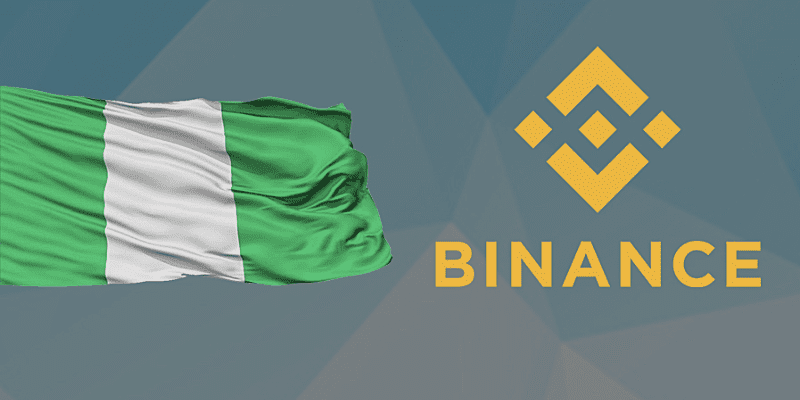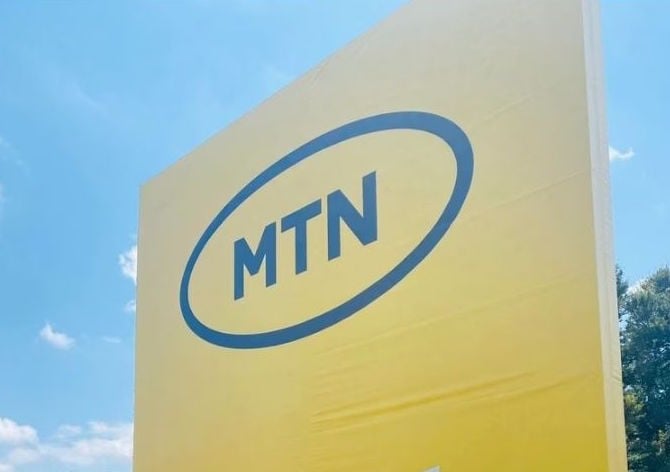US Strikes Again: Fresh Travel Advisory Ignites Fury and Fear in Nigeria
A recent travel advisory issued by the United States government on July 15, 2025, has drawn strong condemnation from Nigerian officials and security analysts. The advisory, released by the U.S. Department of State, cautioned American citizens against travel to Nigeria, citing widespread insecurity, terrorism, kidnapping, civil unrest, and inadequate healthcare infrastructure. It specifically listed eighteen states under the "Do Not Travel" category, including Borno, Yobe, Kogi, and northern Adamawa due to terrorism and kidnapping, and several southern states because of violent crime and armed gangs.
Ambassador Suleiman Dahiru, a retired Nigerian envoy, lambasted the advisory as exaggerated, counterproductive, and reliant on outdated intelligence and "beer parlor discussions." He argued that such warnings, often in collaboration with European partners, have never yielded positive security results and instead damage Nigeria's international reputation. Dahiru accused the U.S. of hypocrisy, noting that threats like mass shootings are more prevalent within America itself, asserting, "It is only in America that you go to the restaurant to eat, you get shot and killed there. It is only in America that you go to the shopping mall to shop and you are killed there. I have not heard of any Nigerian or any foreigner that has been killed in a shopping mall in Nigeria." He further suggested the advisory was politically motivated and lacked sincerity, urging the U.S. to engage Nigerian authorities constructively if genuine concerns exist. The former diplomat also expressed concern over perceived American double standards and its alliance with Israel regarding the Gaza crisis.
Kabiru Adamu, Managing Director of Beacon Consulting Limited and a leading Nigerian security analyst, echoed these criticisms, describing the alert as routine but significantly damaging to Nigeria's global image and diplomatic ties. While acknowledging that much of the advisory remained consistent with previous ones, Adamu highlighted the new emphasis on "inconsistent availability of health care services" as particularly impactful. He outlined four major consequences: public image damage reinforcing Nigeria's perception as unsafe, diplomatic strain, pressure on healthcare reform, and reputational harm to the struggling health sector. Adamu pointed out a reported 79% decrease in kidnap-for-ransom cases in some parts of Nigeria, which he noted the U.S. alert failed to consider. He warned that the advisory could deter foreign investment and tourism, discourage diaspora visits, increase insurance requirements, and raise risk premiums for international investors, potentially disrupting supply chains.
Adamu also predicted a "ripple effect," suggesting that other foreign missions, including those from EU countries, Australia, and Japan, might issue similar alerts, simply following the U.S. lead. He advocated for better diplomatic engagement between Nigeria and the U.S. to temper future advisories, lamenting that the current advisory "does not depict a friendly country." The Nigerian government has yet to issue an official response to this latest advisory. However, it had publicly denounced a similar warning last month, with the Minister of Information and National Orientation, Mohammed Idris, affirming Abuja's safety for residents and visitors. Alkasim Abdulkadir, Special Assistant on Media and Publicity to the Minister of Foreign Affairs, indicated that the ministry is currently reviewing the advisory's contents and would respond accordingly.
The U.S. advisory itself detailed the common violent crimes in Nigeria, including armed robbery, assault, carjacking, kidnapping, hostage-taking, roadside banditry, and rape. It specifically noted that kidnappings for ransom frequently target dual nationals and U.S. citizens perceived as wealthy, and occur on interstate roads. On terrorism, it warned of ongoing risks of attacks and other activities. The advisory also highlighted that Nigerian medical facilities generally do not meet U.S. or European standards, with many essential medicines unavailable. It advised travelers to bring sufficient medication, update vaccinations (including yellow fever, meningitis, typhoid, cholera, hepatitis A and B, polio booster), take malaria prophylaxis due to high risk, and be aware of counterfeit pharmaceuticals. Hospitals often expect immediate cash payment, and emergency services, blood supply, and ambulance services are deemed unreliable and poorly equipped, strongly recommending medical evacuation insurance.
Beyond specific advisories, Nigeria's relationship with the United States has been marked by broader tensions. The U.S., despite advocating for a liberal rules-based international order, has been increasingly seen by some as a "disrupter in chief," not only impacting multilateral institutions but also its established bilateral relations. This perception intensified with the abrupt change to Nigeria's entry visa modality, reducing it to three months and single entry, coupled with threats of criminal charges for visa fraud and harboring "illegal aliens." Critics argue that this revised immigration crackdown, while presented as addressing U.S. domestic issues, disproportionately targets Africans and specifically Nigerians, contrasting sharply with the historical benefit the U.S. has derived from immigration.
Furthermore, the alleged U.S. attempt to export its designated illegal migrants to Nigeria, and Nigeria's subsequent refusal to aid Washington in this domestic immigration policy, may have fueled a perceived "vendetta" leading to these visa restrictions. Geopolitically, Washington is increasingly defining Africa, and Nigeria within it, as a battleground to counter perceived Chinese and Russian influence. Nigeria's significance to the U.S. appears to be largely measured by its utility as a platform for this strategic pushback. Recent U.S. summits involving selected African leaders have been criticized as a "divide and rule" tactic reminiscent of colonial approaches, notably snubbing consequential powers like Nigeria, Egypt, Ethiopia, and South Africa. Nigeria's independent foreign policy, particularly its formal status as a BRICS partner, is seen as a point of contention for Washington, which some believe views BRICS as an opposition to its liberal exclusionary order. Moreover, long-held suspicions among Nigerians about external support for extremist insurgencies in Nigeria were heightened by revelations of alleged USAID complicity, despite U.S. denials.
These visa restrictions and threats are viewed not as isolated acts of hostility but as part of a deliberate series of actions highlighting U.S. prejudice and selective threats against partners who dare to pursue independent policies. The stark contrast between these harsh restrictions on Nigerians and the welcoming gestures extended to Europeans exposes what critics see as the limits of liberal assumptions of equity, fairness, and justice, mirroring the perceived selective humanity observed in events like the Gaza conflict. Consequently, Washington's actions, despite their disruptive nature, are paradoxically galvanizing momentum towards multilateralism and consolidating an evolving multipolar global order. Nigeria and other African nations are encouraged to persist in their independent foreign policies and constructive engagement with the world, including the United States, as this trend defines the landscape of the emerging global order.
Recommended Articles
Nigeria Takes On Crypto Giant: Binance Faces Tax Evasion Charges

Nigeria's Federal Inland Revenue Service has filed extensive tax evasion charges against cryptocurrency giant Binance an...
Crypto World Buzzes: Yellow Card Enlists Psycho YP as Brand Face

Yellow Card Financial, Africa's rapidly growing crypto exchange, has partnered with Nigerian artist Psycho YP as its new...
Nigeria's Digital Leap: Powering Up Internet Access with Ambitious New Inclusion Drive!

Nigeria is launching an integrated strategy to bridge its digital divide by linking electricity access and internet conn...
FG Targets Telecom Giant: MTN's $6.2BN IHS Towers Acquisition Under Fierce Regulatory Scrutiny

MTN Group has reached an agreement to acquire IHS Towers for an enterprise value of approximately $6.2 billion, regainin...
History Made! Eniola Bolaji Becomes First African World No. 1 in Para-Badminton

Nigeria's Eniola Bolaji has made history by becoming the first African athlete to achieve World No. 1 in women's SL3 par...
MTN's $6.2 Billion IHS Towers Acquisition: A Regulatory Battle Unfolds!

The Nigerian Federal Government will rigorously assess MTN Group's $6.2 billion acquisition of IHS Towers, citing concer...
You may also like...
When Sacred Calendars Align: What a Rare Religious Overlap Can Teach Us

As Lent, Ramadan, and the Lunar calendar converge in February 2026, this short piece explores religious tolerance, commu...
Arsenal Under Fire: Arteta Defiantly Rejects 'Bottlers' Label Amid Title Race Nerves!

Mikel Arteta vehemently denies accusations of Arsenal being "bottlers" following a stumble against Wolves, which handed ...
Sensational Transfer Buzz: Casemiro Linked with Messi or Ronaldo Reunion Post-Man Utd Exit!

The latest transfer window sees major shifts as Manchester United's Casemiro draws interest from Inter Miami and Al Nass...
WBD Deal Heats Up: Netflix Co-CEO Fights for Takeover Amid DOJ Approval Claims!

Netflix co-CEO Ted Sarandos is vigorously advocating for the company's $83 billion acquisition of Warner Bros. Discovery...
KPop Demon Hunters' Stars and Songwriters Celebrate Lunar New Year Success!

Brooks Brothers and Gold House celebrated Lunar New Year with a celebrity-filled dinner in Beverly Hills, featuring rema...
Life-Saving Breakthrough: New US-Backed HIV Injection to Reach Thousands in Zimbabwe

The United States is backing a new twice-yearly HIV prevention injection, lenacapavir (LEN), for 271,000 people in Zimba...
OpenAI's Moral Crossroads: Nearly Tipped Off Police About School Shooter Threat Months Ago
ChatGPT-maker OpenAI disclosed it had identified Jesse Van Rootselaar's account for violent activities last year, prior ...
MTN Nigeria's Market Soars: Stock Hits Record High Post $6.2B Deal

MTN Nigeria's shares surged to a record high following MTN Group's $6.2 billion acquisition of IHS Towers. This strategi...